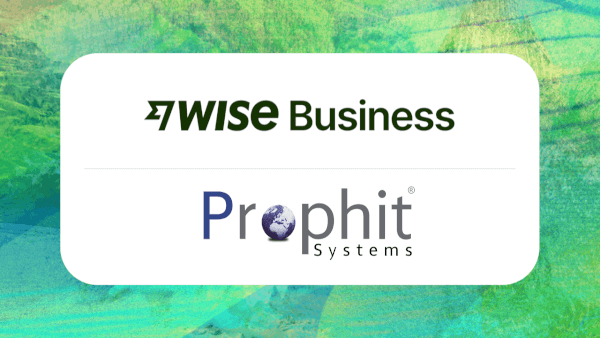Can a Sole Trader Have Employees? Rules & Guide
Unsure if a sole trader can hire employees? Learn the rules, legal obligations, and benefits of employing staff as a sole trader in Australia.

Business owners have to keep on top of many different tasks and activities in the course of any given day or week. One key job for most entrepreneurs and small business owners is invoicing - to ensure timely payment for goods and services sold.
But how quickly do you need to sort out your invoicing? Or, to put it another way - How late can an invoice be issued and remain valid in Australia? This guide covers what you need to know.
| Table of contents |
|---|
Sign up for the Wise Business account! 🚀
One key thing to understand when it comes to late invoicing is the concept of Limitations Acts (or Statute of Limitations), which are set by different states and territories, and which determine how long a contract, or quasi contractual agreement lasts.
Limitations Acts allow for an end date after which the issuer of an invoice may find that the debt they’re chasing becomes statute barred. This means that the invoice can not be enforced after a certain amount of time¹.
Limitations Acts are set regionally, but in most states and territories the limit is 6 years. The exception here is Northern Territories, where the statute of limitations is set at 3 years².
The Limitations Acts described above set an outside limit for the length of time a standard invoice can be issued and remain legally valid.
There’s also a time limit set for the issuance of tax invoices, which is far shorter³. This is because businesses need the tax invoice in good time to be able to manage their own accounting processes. The ATO states that if a customer asks for a tax invoice, you must provide one within 28 days. This applies for any sale over the GST threshold of 82.50 AUD (including GST)⁴.
Once you’ve sold goods or services, you’ll need to issue an invoice to allow the customer to pay. Failing to issue timely invoices could mean you fall foul of the law - but it can also have a huge impact on cash flow. If you’re late in issuing invoices and therefore your cash reserves run low, this presents operational issues pretty quickly - for paying staff, buying new stock, covering business expenses and many other day to day needs.
As we’ve seen, the legal limit on issuing an invoice in most parts of Australia is 6 years. However, even if your invoice is issued much sooner than this, the customer may ask for some explanation if it’s significantly delayed from the point of their purchase⁵. If you’re issuing a very late invoice, you may want to have a conversation with the client or customer to discuss why, to maintain productive relationships and ensure you get paid quickly upon issue of the invoice.
There are a couple of different broad considerations depending on the type of invoice involved - tax invoices and standard invoices, which we’ll look at next.
If your business is GST registered you must issue a tax invoice for any taxable purchase over the value of 82.50 AUD (including GST)⁶. This is mandatory when a customer requests it, but can be included in all invoices which are taxable to streamline your process.
The tax invoice is then used by GST-registered businesses to claim a credit for the GST in the purchase price. Because this invoice influences the proper accounting of other businesses, there’s a strict timeline on issuing a tax invoice. As we’ve seen already, you need to provide a tax invoice within 28 days if one is requested.
For normal business invoices without GST requirement, and for non-GST registered businesses, invoices are still required. If no GST is payable on the purchase you can simply confirm this in the invoice by stating ‘No GST has been charged’ or by showing the GST amount as zero.
Regular invoices don’t fall under the ATO’s 28 day rule, but it’s still a good idea to get your invoices out as soon as practicable. This is better for the customer as it allows them to manage their books more accurately, and better for your business as it helps to manage your cash flow.
If you are very late in issuing a standard invoice, the statute of limitations in your state or territory may ultimately apply if there’s a dispute about payment. This means that you need to issue the invoice within 3 or 6 years depending on your location, to ensure the contract between you and your client remains valid.
Here are a few best practice ideas for invoicing on behalf of your business, so you can have a pain free billing process.
Check out Wise Business for ways to receive customer payments with local and SWIFT account information in 8+ currencies, and invoicing tools that can help you generate professional invoices in whichever currency you need.
Wise customers can hold and exchange 40+ currencies in one account, making it easier to manage foreign currency payments, including incoming customer transfers and payments to suppliers, contractors and overseas team members. All currency conversion uses the mid-market rate which helps to keep down the overall costs of exchanging and sending payments globally, with low, transparent fees.
Expanding a business globally opens up exciting opportunities, but also new challenges like receiving payments across borders. Hidden foreign transaction fees and hefty currency conversions involved with international payments can eat into your profits and time.
Wise Business serves as a cost-effective solution where you can receive money from around the world at the speed and price of local payments.
Transform the way you receive payments with Wise Business:
Sign up for the Wise Business account! 🚀
*Please see terms of use and product availability for your region or visit Wise fees and pricing for the most up to date pricing and fee information.
This publication is provided for general information purposes and does not constitute legal, tax or other professional advice from Wise Payments Limited or its subsidiaries and its affiliates, and it is not intended as a substitute for obtaining advice from a financial advisor or any other professional.
We make no representations, warranties or guarantees, whether expressed or implied, that the content in the publication is accurate, complete or up to date.

Unsure if a sole trader can hire employees? Learn the rules, legal obligations, and benefits of employing staff as a sole trader in Australia.

Learn how to lodge your BAS in Australia. Our guide covers what to include, from GST to PAYG, key due dates, and best practices to stay compliant with the ATO.

Discover if a virtual assistant is right for your business. This guide covers the types of VAs, their duties, managing them, along with the pros and cons.

Read on how Prophit Systems saved up to 9x on global payroll by switching to Wise Business, saving over 10+ hours a month in admin time.

Essential invoice payment terms for Australian businesses. From Net 30 to PIA, discover best practices to improve cash flow and get paid faster. Read now!

Learn how the OFX business account works, its features, and how it compares to other international payments solutions. Find out more here!